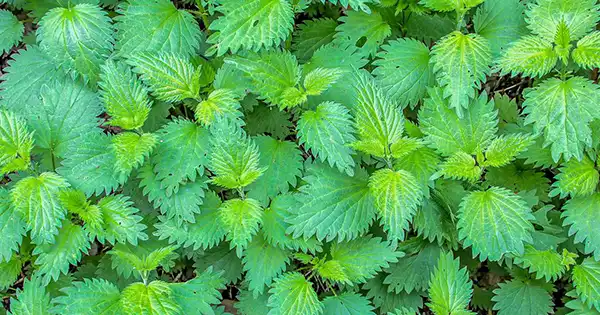In the world of agriculture, the quest for sustainable and eco-friendly farming practices has gained momentum in recent years. One such practice that has been garnering attention is the use of nettle fertilizer pesticide. Nettles, often seen as weeds, can be transformed into a potent and natural solution for both fertilizing and pest control in agriculture. This article delves into the benefits and methods of using nettle fertilizer pesticide in modern farming.
The Versatile Nettle Plant
Nettle (Urtica dioica) is a common plant found in many parts of the world. It is notorious for its stinging hairs, which contain irritating substances. However, beneath its prickly exterior lies a powerhouse of nutrients and natural chemicals that can be harnessed for agricultural purposes.
- Rich in Nutrients: Nettles are packed with essential nutrients such as nitrogen, potassium, calcium, and iron, making them an excellent source of natural fertilizer.
- Natural Pesticidal Properties: Nettles contain compounds like lectins, formic acid, and histamine, which serve as a natural defense mechanism against pests. These compounds can also be used to create an effective and eco-friendly pesticide.
Creating Nettle Fertilizer
Nettle fertilizer is easy to make and provides plants with the nutrients they need to thrive. Here’s a simple recipe for creating nettle fertilizer:
Ingredients:
- Fresh nettle leaves and stems
- A large container or bucket
- Water
Instructions:
- Gather Nettles: Collect fresh nettle leaves and stems. Be sure to wear gloves to avoid stings.
- Chop Nettles: Cut the nettle leaves and stems into smaller pieces.
- Place in a Container: Fill a large container or bucket with the chopped nettles.
- Add Water: Pour water over the nettles until they are fully submerged.
- Fermentation: Cover the container and let the mixture ferment for 2-3 weeks. Stir the mixture occasionally.
- Strain: After fermentation, strain the liquid into another container, discarding the solid plant material.
- Dilution: Dilute the nettle liquid with water at a 1:10 ratio (one part nettle liquid to ten parts water). This is your nettle fertilizer.
Using Nettle Fertilizer Pesticide
Nettle fertilizer can be applied to your plants in several ways:
- Foliar Spray: Dilute the nettle fertilizer and spray it directly onto the leaves of your plants. This can help improve nutrient absorption and act as a natural pesticide.
- Soil Drench: Pour the diluted nettle fertilizer directly into the soil around your plants’ roots to provide them with essential nutrients.
Benefits of Nettle Fertilizer Pesticide
- Sustainable: Nettle fertilizer is a sustainable and environmentally friendly alternative to chemical fertilizers and pesticides, reducing the environmental impact of agriculture.
- Cost-Effective: Nettles are abundant and easily accessible, making this a cost-effective solution for farmers.
- Enhanced Plant Health: Nettle fertilizer not only provides essential nutrients but also helps boost plant resistance to pests and diseases.
- Reduced Chemical Dependency: By incorporating nettle fertilizer pesticide into their practices, farmers can reduce their reliance on synthetic chemicals, contributing to healthier ecosystems.
- Improved Soil Quality: Nettle fertilizer enriches the soil, improving its structure and fertility over time.
Conclusion
The use of nettle fertilizer pesticide offers a promising path towards sustainable and eco-friendly agriculture. By harnessing the power of this versatile plant, farmers can nurture their crops while reducing their impact on the environment. As we continue to seek more sustainable farming practices, nettle fertilizer pesticide is a natural and effective solution that deserves a place in modern agriculture.
